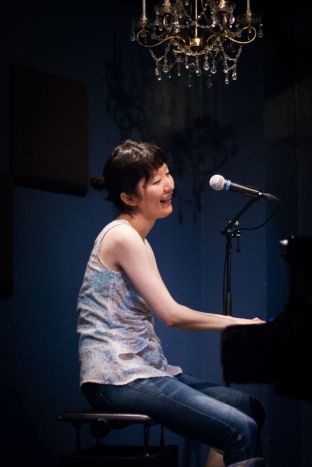
| KOH - piano+vocal,composer - |
| Japanese Page |
 |
| [Biography] |
| All That Jazz (Radio) |
| [Performance Schedule] |
| Calendar Click! |
| [Discography] | ||
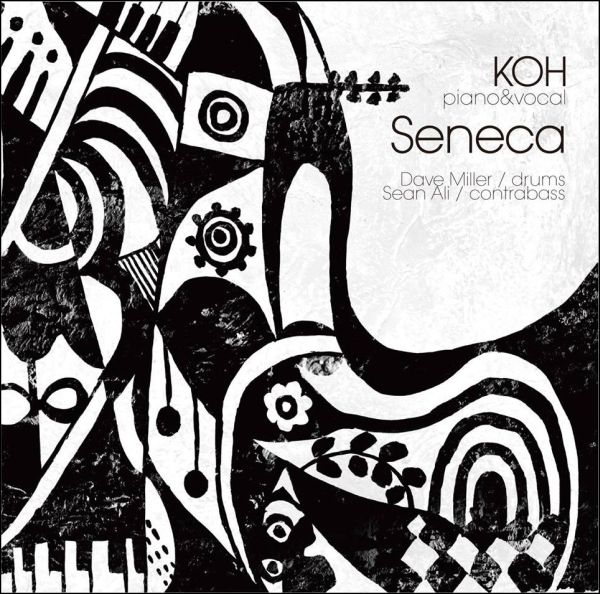 _ _ |
2015 Release $14.97 KOYA-108003 JAN4524505321782 All track piano&vocal/KOH Track1,2,5,7,8 drums/Dave Miller Track6 contrabass/Sean Ali All words/KOH Track1,2,3,5,6,7,8,9 composition/KOH Track4 composition/Masahiro Uemura&KOH Recorded at Systems Two, NYC engineer/Max Ross produced by KOH Manufactured by KOYA Records E-mail: koh@if.main.jp |
|
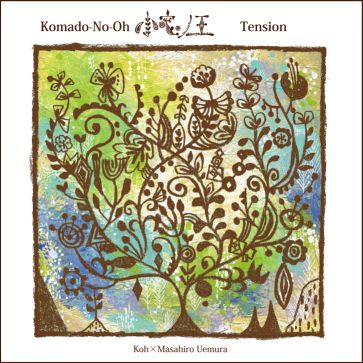 _ _ |
2011 Release $14.97 KOYA-108002 JAN4524505299968 KOH:Piano, Vocal Masahiro Uemura:Drums Composed by KOH&Masahiro Uemura Recorded on Sep,2010 at Studio Dede Tokyo produced by KOH Manufactured by KOYA Records E-mail: koh@if.main.jp |
|
|
An anxiety for the unforeseeable prospect,and a feeling of security believing that it will never collapse though. A world of stimulating, aggressive, colorful, and so expansive soundswith a miraculous dynamism. Masako Maehara (Music writer) |
||
|
His majesty King of Komado No Kuni is a virtuoso of fingerplay songs! Miho Watanabe (Doctor of Musical Arts) |
||
| "Do-Chu" Metropolis | The Shop NOW ON SALE | ||
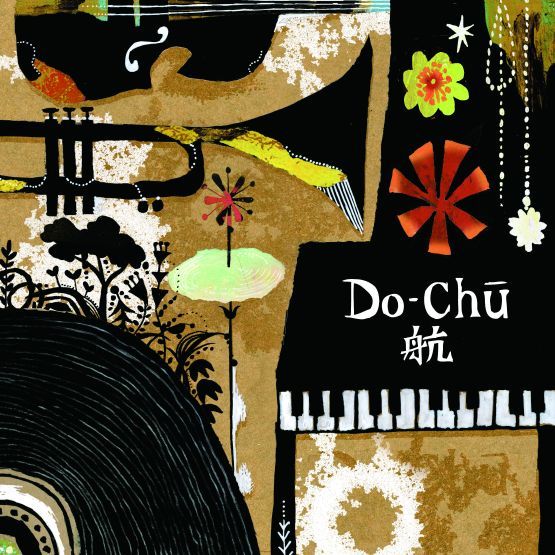 _ _ |
2010 Japan Release / 2011 CD Baby, iTunes store Release $14.97 KOYA-108001 JAN4524505296233 KOH:Vocal,Piano,Keybord Natuki Tamura:Trumpet Masahiro Uemura:Drums Nankoh Kumon:Cello Composed by KOH Recorded on Aug,2009 at Studio Dede Tokyo/on May,2009 at GOK Sound Tokyo produced by KOH Manufactured by KOYA Records E-mail: koh@if.main.jp |
|
|
"The free, novel, radical, fresh, and more than anything, so genuine sounds of Koh." Satoko Fujii (Jazz Pianist) |
||
|
"The music, which is lacking stability, almost dangerous, and might violate public order and morality. Voices and sounds of instruments are counterbalancing each other excellently, and Koh's dignified singing voice will shove the listeners away in the distance. The enticement to shove them last will be her unique musical characteristic. Jun Numata /doubtmusic (from the liner note) |
||
| "TENSION" METOROPOLIS/THE SHOP NOW ON SALE | ||
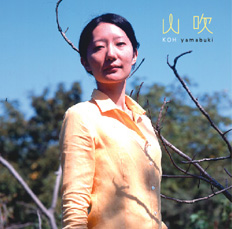 _ _ |
2005 Release LIBRA RECORDS produced by Satoko Fujii LIBRA 203-012 KOH:Vocal Satoko Fujii:Piano Ted Reichman:accordion Composed by Satoko Fujii, KOH |
|
| [Quotes] | |
| Luca Canini (All About Jazz Italia) "Seneca" Quotes | |
| Ludovico Granvassu (All About Jazz) "Seneca" Quotes | |
| Eyal Hareuveni (All About Jazz) "Do-Chu" "Tension" Quotes | |
| Tension Quotes | |
| Kazuhiko Namekawa (Music Magazine, August 2011, "Album Pickup") | |
|
This is the debut release from a duo consisting of KOH, a female musician who has been performing in clubs around Tokyo since 1998, and Masahiro Uemura, an active and multifaceted drummer who has been working in sessions with KOH since the year before last. Though singing is featured on all eight tracks of this 50-minute album, the pieces, ambitious in scale, are not structured at all like conventional pop music. Nor do they fit neatly in the jazz category, but are more of a hybrid with leanings toward rock. Where KOH's five originals are bold and stout-hearted, Uemura's three pieces have a high perversity quotient, leavened with humor. Every tune gives play to a variety of rhythms, adroitly interweaving fast and slow passages in a free flow that never stagnates. Uemura also participated in KOH's second solo album Do-Chū, released last year; on this one he seems to have elicited from KOH a pop side that was not evident on the previous CD. KOH plays solo in many passages, but where the two musicians play together, this is not a battle between her powerful two-handed piano and his sensitive yet daring drumming. Rather, Uemura serves as KOH's escort, injecting beats where appropriate. KOH's lyrics, which evoke walks in the mountains or along the seashore, are concise and reticent, yet extremely eloquent. In a voice that is at once delicate and masculine, she colors her sketch-like songs with a touch of old balladry. | |
| Koji Murai (excerpted from JaZZ JAPAN Vol. 13, ©JaZZ JAPAN/Koji Murai) | |
| Komado-No-Oh is the duo of pianist/vocalist KOH Ohtera and drummer Masahiro Uemura. The curious band name (which translates to English as "King of the Small Window") is the name of a rocky peak on Mt. Tsurugi in the Japanese Alps, and indeed, many of KOH's lyrics speak in unadorned terms of "you and me in the midst of nature." Hers is a stoic sound that suits the simple structures of these tunes, but on occasion her voice goes through dramatic permutations; in any event there is never a dull moment. This is music that sounds eccentric, yet exudes a glow of "spiritual health." | |
| Vincenzo Roggero (all about jazz italia) (translated from the Italian) | |
|
Bizarre, original, and intriguing -- very intriguing . . . an album of contrasts, and contrasts! Not only between song and song but within the same performance, one is confronted with a whirlpool of changes that make the head spin. Extreme dynamics, from pianissimo to violent outbursts, sweet lullabies that suddenly become nightmares, hot and sensual shuffles that shift into Brechtian theatrical expressionism, binary rhythms that morph into a kind of Oriental prog-rock, tunes that seem to come from some obscure Italian opera. The pianism of Koh is necessarily chameleon-like. Steeped in classical music through her academic background, she moves with astonishing agility and credibility between richly emphatic baroquisms and minimalism, powerful clusters and gentle brushstrokes, hot blue-notes and oblique phrasing. And then there is her voice, which enchants with a storyteller's charm, yet at the same time will pierce you with tones as hard as stone -- transporting you to a fantasy world with rivers of milk and honey, but when you peek around the corner, there's the evil ogre. Uemura, far from an overwhelming presence, reveals himself as a sensitive partner who supplies rhythmic figures of refined beauty, creating shadows, startling flashes of light and, when necessary, complex rhythms that would make any rock'n'roller jealous. "A Swindler—#18," a bonus track with only piano and voice, emblematically brings this phantasmagoric world of expression to a masterful close. | |
| Kayo Fushiya (JAZZ TOKYO) | |
|
This is a monolithic unit: a duo, not so much of KOH and Uemura as of voice and instruments. The instrumental part of the equation (KOH's piano and Uemura's drums) shares the same breath even as it grapples fiercely amid one great surging wave of tension. Even within a single human being, it's virtually impossible to prevent some divergence in time sense between different parts of the same body. Inevitably, some part of you is going to lag. But in the case of KOH and Uemura, every second, every sound, every movement is subdivided, multilayered . . . an amalgam of precision sound images, perfectly superimposed, that form instances of frozen time even as they flow and change without letup. Adding vivid coloration to these kaleidoscopically revolving sound images is a rich world of Japanese verse. "Songs" come and go, flirting with the instrumentals like butterflies. Shifting her shape at will, KOH takes us on a pleasurable journey into multiple dimensions. Yet that dreamlike world is anchored in substance. Weaving like the wind between the poles of soft and hard, vertical and lateral, KOH and Uemura execute their maneuvers at remarkable speed. We can only marvel at the adaptability, physical power, and technical perfection they display in the service of their conception. In the high standards they set for themselves one senses an unswerving spirit. True individuality means refusing to make easy comparisons with others, and part of their tension derives from this tenacity and resistance. | |
| Do-Chū Quotes | |
| Eisuke Sato (CD Journal, July 2010, "This Month's Recommended Disks") | |
| A woman who sings while playing piano or keyboard, KOH had her previous release produced by the world-renowned free-jazz pianist Satoko Fujii, but this album is self-produced. And it's incredible. What she expresses is entirely her own. The basic unit here is KOH with drummer Masahiro Uemura, with some tracks including Natsuki Tamura on trumpet and Nankoh Kumon on cello. Always her pieces give ample room for interplay and a vital use of space. Ranging in mood from spiritual to aggressive, her compositions flow in diverse directions (some display astonishing fingerwork reminiscent of contemporary prog-rock). The way in which they seem to touch, at whim, upon words (in Japanese), melodies, and spirits that dance in the ether is emotionally thrilling -- and thought-provoking as well. It's inspiring to hear someone of such talent take a graceful, leisurely stroll through her own world. | |
| Kazuhiko Namekawa (Music Magazine, July 2010, "Introducing Indie Albums") | |
| A unique musician to whom the term singer-songwriter cannot do justice, KOH (vocal, piano, keyboards) has released her second album, Do-Chū (KOYA-108001). It comes six years after her debut album, which was produced by Satoko Fujii. The nine tracks, running to about 60 minutes, include accompaniments by Natsuki Tamura (trumpet), Masahiro Uemura (drums), and Nankoh Kumon (cello). The pieces seem to expand infinitely to embrace everything from jazz to Japanese folk to R&B to contemporary music to progressive rock to pop. They develop on a grand, thrilling scale that brings to mind The Mars Volta. With a keyboard sound that dances with tickling mischief and wit, this CD spins out tunes that weave a story. The vocals are sparing in words, but they blend eloquently with the instrumentation. From KOH's powerful throat comes a sound that is unhurried, earthy, and at times reminiscent of a female saint -- with a boldness of expression that, I would dare to say, is uniquely a woman's. | |
| Masato Maedomari (Jazz Critique Magazine, July 2010, "MOONKS Masato Maedomari Selection") | |
| KOH's music is original and her voice has a soul. Every song creeps up on you, inviting you to drink of it deeply. The participation of Natsuki Tamura on trumpet is a reminder that he and Satoko Fujii bring to such projects the sense of a natural spirit liberated from the insular chambers of the musical underground. In nature, of course, inspiration and fear, courage and despair all cohabitate. With her poetry, melodies, and pop sense, KOH gives voice to both the power of Mother Nature and the weakness of humanity. | |
| Satoshi Kojima (Strange Days, August 2010, "From Alternative Transmission Sources") | |
|
KOH was born in Tokyo in 1979, graduated from the Kunitachi College of Music, and studied with Fumiko Yoshida and Grete Dichler. She began performing at clubs in Tokyo in her late teens and continues to do so in what is, in a sense, a typical "my pace" artistic career. What caught my interest, however, is the fact that she has also studied music therapy. In recent years she has acquired an image as a pianist capable of approaching music as something relative, not bound to a particular genre or sound. Her second album, Do-Chū, fully manifests this approach. Supporting her on the album are trumpeter Natsuki Tamura (partner of pianist/composer Satoko Fujii), drummer Masahiro Uemura, and cellist Nankoh Kumon. I have mentioned Tamura frequently in these pages so won't repeat myself here. Uemura, who has earned fans in Eastern Europe and elsewhere, has worked in units with Toshihide Otomo and Takeharu Hayakawa. Kumon, who was not known to me, has an improvisational unit called the Segments String Quartet. Assisted by artists like these who are adept at carving out their own territory while maintaining their artistic freedom, KOH uses her brusque yet warm vocals and smoothly rippling piano to create works that open up a world of music that is beyond genre and at once gentle and fraught with tension. In addition to her original lyrics, some of the pieces use texts by the free-form haiku poet Santoka Taneda or the writer Ayako Sono. Her songs impart a sense of flotation to the world of words, constructing utterly original forms from the chemical reaction she skillfully generates between those words and sound, as well as sections of silence. Such titles as "Ridgeline," "Moon Waxes," and "Signpost" suggest the conscious imprint of a Japanese sensibility, but the uninhibited performances that arise from these exquisite collaborations thoroughly transcend nationality. This album, which reveals an artist intuitively sure of the direction she wants her music to take, even shares something in common with the textures produced with electronics by some Scandinavian musicians. | |
| Masahiko Yuu (Jazz Tokyo) | |
| These nine pieces from KOH's pen begin with "Window" and, passing through "Ridgeline," "Santoka," and "Gare," end with "Signpost," with its allusions to the writings of Ayako Sono. No one will mistake these for jazz vocal compositions; though her co-conspirators are from the jazz world and the pieces develop in a jazzily rhythmic way, there is no need to think of this as jazz. Yet at the same time, KOH's piano constantly displays an attack, a dance, a freshness that is truly jazzy. Then there is the mystery of the title. What does "Do-Chū" allude to -- a journey? a stroll through space? As one listens, riddle piles upon riddle. KOH's vocals, which at times sound like mumbled incantations, could be the work of a new type of shaman. It's fun to listen while thinking along these lines, and even more while recalling KOH's own description of this as "hodgepodge stew music." Scarily free and unrestrained, brimming with riddles and nonsense, this is an adventure in play with sounds and words. | |
| [Contact] | |
| E-mail: koh@if.main.jp | |
| Japanese Page | |